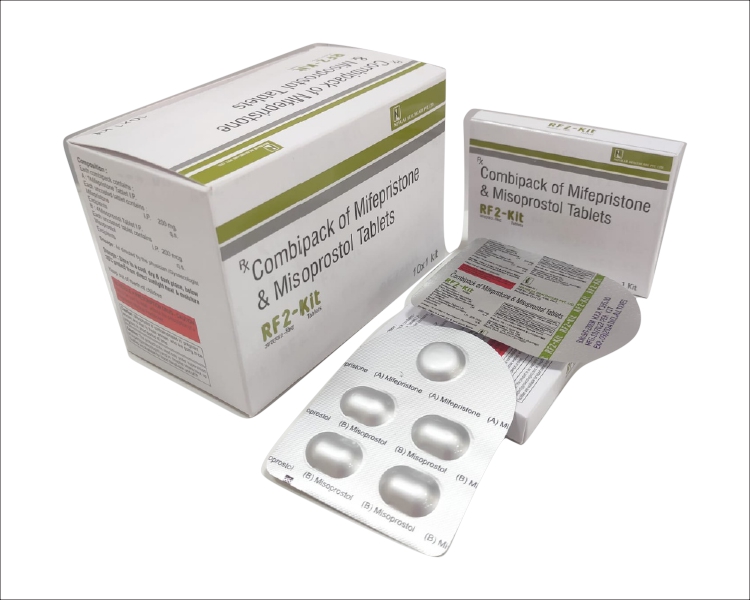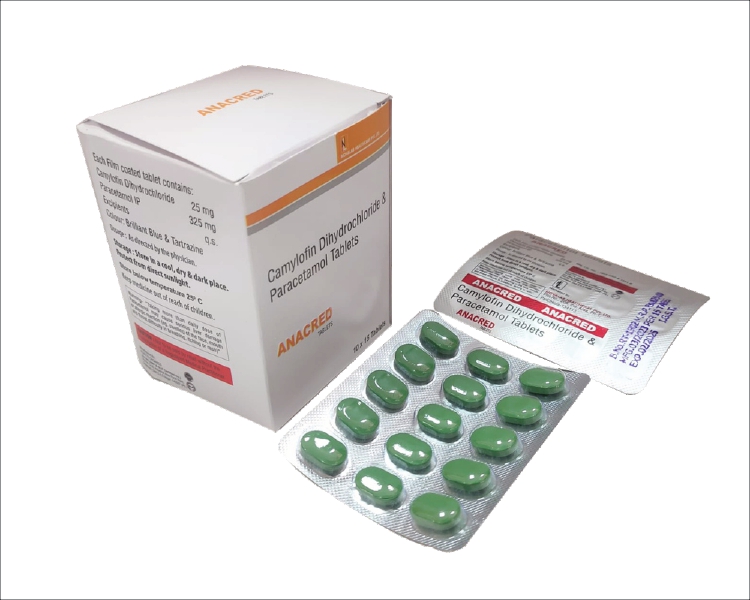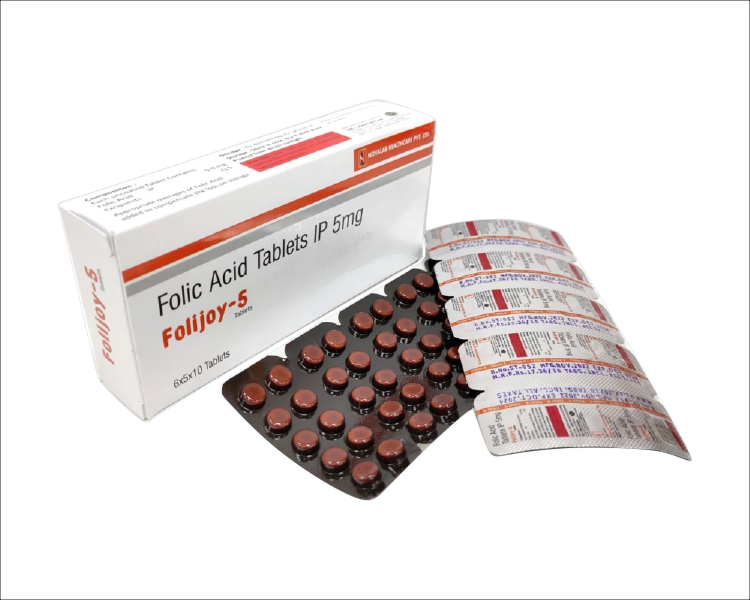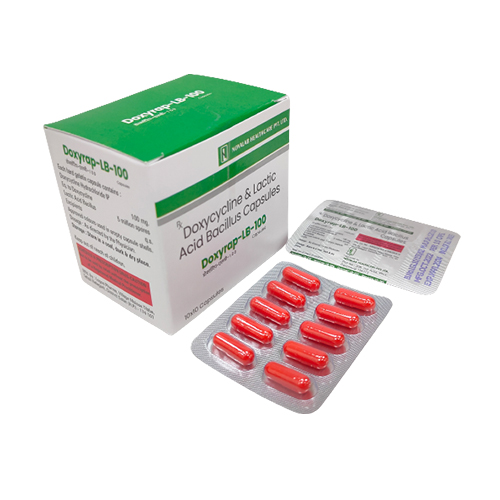-
 Open Hours: Mon- Sat 10:00 am - 06:30pm
Open Hours: Mon- Sat 10:00 am - 06:30pm


Pantoprazole I.V. Injection
August 8, 2023
Methylergometrine Maleate Tablets
September 12, 2023Mifepristone & Misoprostol Tablets
RF-2 KIT
Combipack of Mifepristone 200mg and Misoprostol 200mg tablets are used in medical abortion, providing a non-surgical option for terminating early pregnancies. Mifepristone, an anti-progestin, blocks the hormone essential for maintaining pregnancy, leading to the detachment of the embryo from the uterine lining. Subsequently, Misoprostol, a prostaglandin analog, induces uterine contractions, expelling the embryo. This combination is effective within the first nine weeks of pregnancy. The process is conducted under medical supervision, and follow-up care is essential. While generally safe, potential side effects include bleeding, cramping, and nausea. Proper administration and guidance from healthcare professionals are crucial for a safe and effective abortion.
Benefits of Using Mifepristone & Misoprostol Tablets
Mifepristone and Misoprostol tablets provide a non-invasive and effective method for medical abortion, offering women a safe option within the first nine weeks of pregnancy. Mifepristone disrupts progesterone, leading to embryo detachment, while Misoprostol induces contractions for embryo expulsion. This approach avoids surgery, grants privacy, and allows women more control over the process. It’s particularly beneficial in regions with limited access to surgical abortion facilities. While side effects like bleeding and cramping might occur, the benefits include a medically supervised, accessible, and less invasive alternative for terminating early pregnancies, prioritizing women’s reproductive health and rights.
How to Use Mifepristone & Misoprostol Tablets
The usage of Mifepristone and Misoprostol tablets for medical abortion typically involves a two-step process. First, a healthcare professional administers Mifepristone to block progesterone, detaching the embryo from the uterine lining. After 24 to 48 hours, the patient self-administers Misoprostol, inducing uterine contractions for embryo expulsion. This process occurs under medical supervision, and follow-up care is crucial. Dosages and timing are specific to each case and should be strictly followed. Potential side effects, including bleeding and cramping, are common but temporary. This method provides a safe and non-surgical option for terminating early pregnancies when done with proper medical guidance.
How Mifepristone & Misoprostol Tablets works
Mifepristone and Misoprostol tablets collaborate for medical abortion. Mifepristone, an anti-progestin, inhibits progesterone, causing detachment of the embryo from the uterine lining. This primes the uterus for expulsion. After 24-48 hours, Misoprostol, a prostaglandin analogue, induces uterine contractions, facilitating the expulsion of the embryo. This two-step process is highly effective within the first nine weeks of pregnancy. The combined action ensures a non-surgical, safe, and accessible method for terminating pregnancies. While side effects might include bleeding and cramping, the overall approach, administered under medical supervision, prioritizes women’s reproductive autonomy and health.
Precautions While Using Mifepristone & Misoprostol Tablets
While using Mifepristone and Misoprostol tablets for medical abortion, strict adherence to precautions is vital. It should be administered under the supervision of healthcare professionals. Confirm the pregnancy duration is within the approved timeframe (up to nine weeks). Report any allergies or existing health conditions to healthcare providers. Follow the prescribed dosage and timing meticulously. Understand potential side effects, including heavy bleeding and severe cramping, seeking immediate medical attention if needed. Arrange for a follow-up appointment to ensure the completion of the abortion. Due to the emotional and physical nature of the process, counseling and support should be available to the individual undergoing the medical abortion.
Side Effects of Using Mifepristone & Misoprostol Tablets
Mifepristone and Misoprostol tablets for medical abortion might lead to side effects. Common but temporary effects include heavy bleeding, cramping, nausea, and diarrhea. Pain relievers can manage discomfort. Serious side effects are rare but might include infection or an incomplete abortion, necessitating medical attention. Mental health support should be available due to the emotional nature of the process. While complications are uncommon, it’s crucial to be aware of warning signs such as severe abdominal pain or persistent bleeding. Proper medical supervision, adherence to dosage instructions, and post-abortion follow-up care mitigate risks and ensure a safe and effective abortion process.
| Composition | Combipack of Mifepristone 200mg and Misoprostol 200mg tablets |
|---|---|
| PACKING | 10×1 kit |










 Call Us Number +9570599567
Call Us Number +9570599567 Get PCD Pharma Distributorship
Get PCD Pharma Distributorship

Reviews
There are no reviews yet.